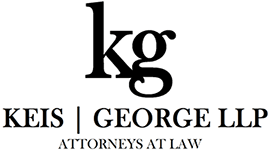Client relationships
A client recently told me about an article published by another law firm with a subrogation department and we were both quite surprised by the subject matter and the tone of the piece. Essentially, the article discussed word usage and lexicon in the insurance subrogation industry, and commented on how insurance company employees frequently fail to use the correct terminology in creating their claims file. What felt off to me is the article came across as instructing the client on what words it should be using just to make life easier on the law firm, as opposed to focusing on relationships. The author was not only telling insurance companies that their usage was wrong, but also attempting to educate the company on why they were wrong via definitions and etymology. The whole thing just felt condescending and just a little bit insulting, much like a mother scolding a child for the way they write after finding their secret journal under the bed.
The whole thing just felt condescending and just a little bit insulting, much like a mother scolding a child for the way they write after finding their secret journal under the bed.
Reading comprehension
As you know from my last article, I haven’t been a practicing attorney for long. I will admit in the very beginning it was confusing to me when I received a file that referred to the adverse party as a “claimant.” But you only need to read a claim file from the same client about three to four times before that confusion disappears and you can clearly understand who and what that client is referencing.
Vernacular speech
Your internal vocabulary has no bearing on whether a case will be successful or not. Would it be easier if the language was consistent throughout — that every insurance company and subrogation department used the same words? Of course. But I’m not here to tell a client how they should assess a case and identify parties. My role in this is as legal counselor, and as counselor I review the information, communicate with the client about the matter, and attempt to get a favorable judgment and subsequent recovery for that client. The client doesn’t tell the law firm what words it should use and the firm should observe the same.
It’s all about relationships
Communication and understanding is the key to an effective relationship. I could care less whether “subrogable” is or isn’t a word or the genesis of the word subrogatable. If you say subrogable, I know exactly what you are talking about, and that is all that matters. Just like any relationship, the attorney-client relationship is fluid and not one-sided. Language in this context is not a barrier to achieving the results you want and have come to expect from Keis George.
